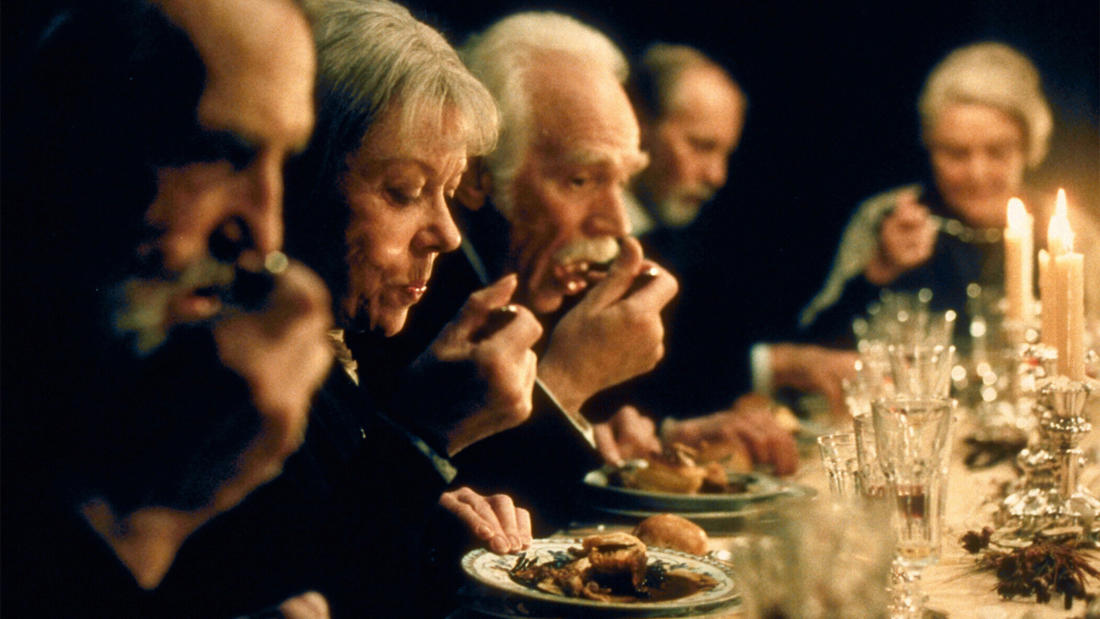
The State Theatre Modesto, CA
Dr. Ken Albala
Professor of History, University of the Pacific; Director of the Food Studies MA program in San Francisco
Babette's Feast— The Science of Taste, Food, and the Kitchen
Program Description
Dr. Albala’s presentation addressed the science of taste, and included many of Brillat-Savarin’s discourses on the pleasures of the table, which the great sage considered to be a science, albeit a most delicious and joyous one.
Presented At
The State Theatre Modesto, CA
Film Synopsis
In a remote 19th-century Danish village, two sisters lead a rigid life centered around their father, the local minister, and their church.
Set in a remote Danish fishing village in the latter part of the 19th century, Babette’s Feast tells of two beautiful sisters (Birgitte Federspiel, Bodil Kjer) who give up their chance for romance and worldly success in order to care for their father, a strict pastor who preaches salvation through self-denial. After his death, they carry on his work, tending to his aging and increasingly quarrelsome flock with saintly devotion. When Babette (Stéphane Audran), a French political refugee, appears on their doorstep seeking shelter, they engage her to keep house and cook their meager meals. Years later, Babette wins the lottery and asks to prepare a sumptuous French feast for the community. Everyone accepts, but the thought of such decadence makes them fear for their Christian souls, and they agree not to show any pleasure. Aided by the exquisite food and wine, the parishioners can’t help but be transported by Babette’s culinary artistry, and soon rediscover their bonds of love and fellowship. Gabriel Axel directed this Oscar-winning Danish film.
About the Speaker
Dr. Ken Albala is a professor of history at the University of the Pacific and director of the Food Studies MA program in San Francisco. He is a cook, lover of good food, and a sought-after speaker the world over. He is also a noted author whose 21 published books include Eating Right in the Renaissance, Food in Early Modern Europe, and The Banquet: Dining in the Great Courts of Late Renaissance Europe.